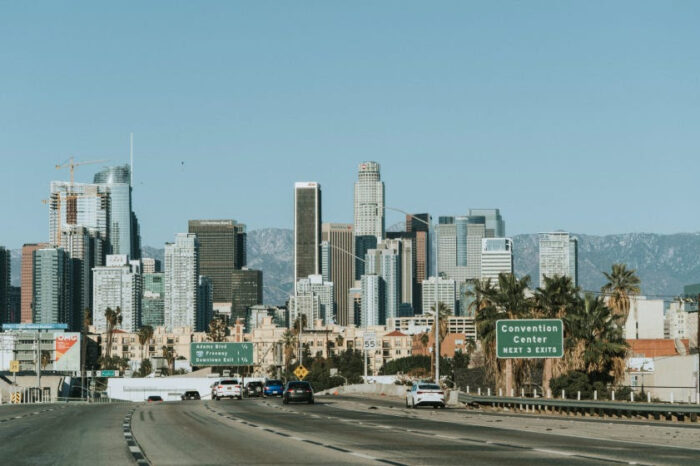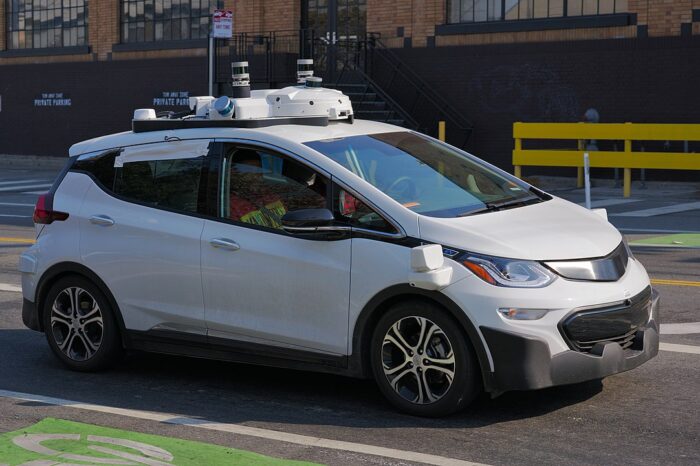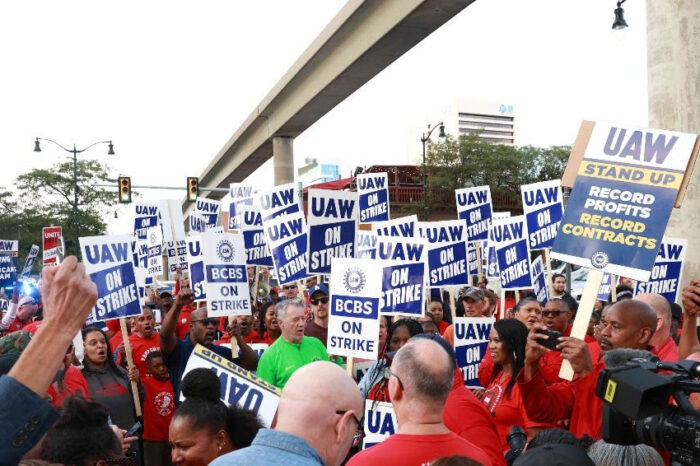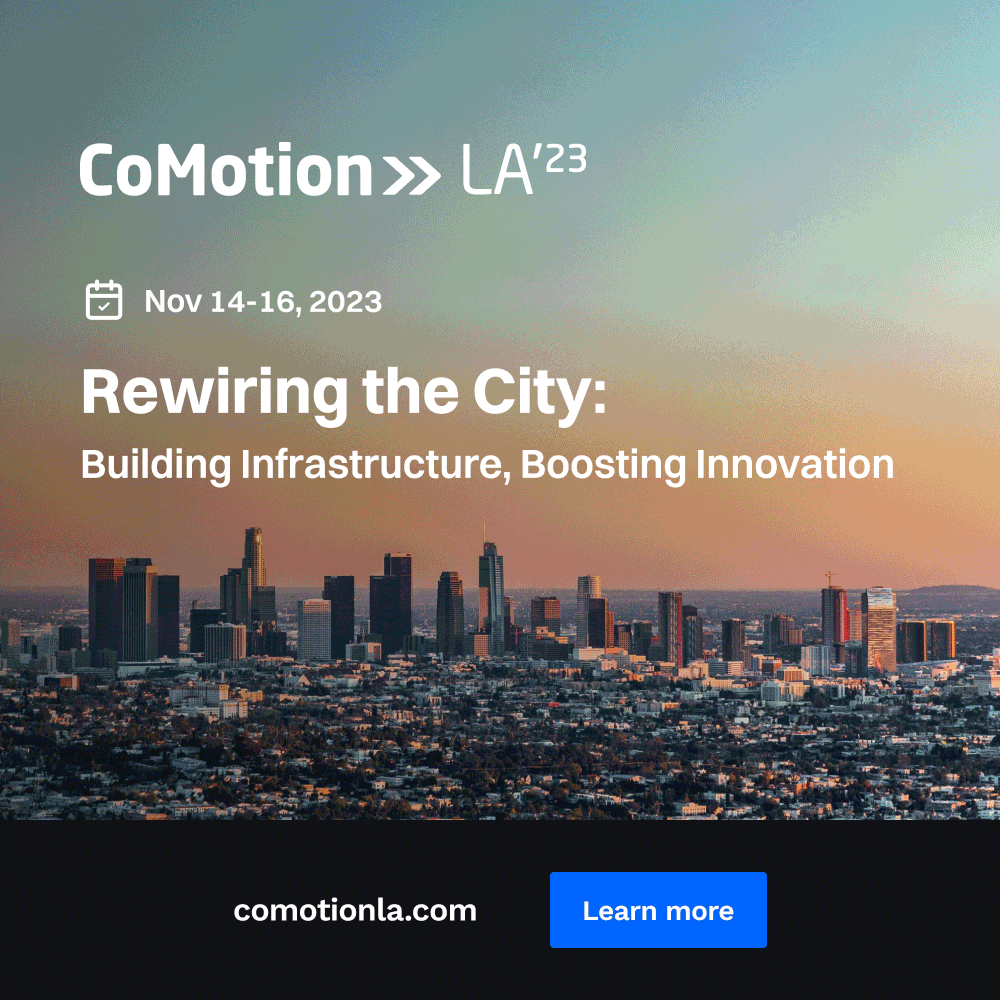Has Pete Buttigieg’s career gone off the rails? That’s certainly the conclusion drawn by critics of the young transportation secretary in the wake of the derailment disaster in East Palestine, Ohio, where people are still not clear on whether it’s safe to drink the water or breathe the air.
Tesla and Ford, meanwhile, are also dealing with some embarrassing issues of their own. Federal regulators prompt Tesla to recall 362,000 vehicles over an issue with Full Self Driving, while Ford pauses production on its flagship EV, the F-150 Lightning, over a battery problem. By the way, just how “green” are these massive electric pick ups?
There’s a lot going on in the ride-hailing world: Amazon-backed Zoox starts giving driverless rides in California, Uber may be forced to collectively bargain with drivers in New Zealand and Lyft confronts some very serious financial challenges. Finally, a study suggests that the big fare increases in the past year have not led to big increases in pay for drivers.
Plus, there is some good news on the air delivery front: a Bulgarian startup that hopes to carry cargo across Europe on van-sized drones and an Israeli startup with little hydrogen-powered drones for last-mile delivery
![]()
Biden & Buttigieg take heat over train derailment: The Biden administration, particularly Transportation Secretary Pete Buttigieg, faces criticism over its response to the derailment of a freight train in East Palestine, Ohio, where residents worry that the explosion of freight cars carrying hazardous materials may present a serious health risk. The administration says it has secured a commitment from the rail company, Norfolk Southern, to cover the cleanup costs, and that officials from the EPA responded immediately to assess the situation. However, local officials have complained that the feds have not reached out and that they’ve received conflicting information about the threat of water and air contamination.
Tesla recalls 362,000 vehicles with Full Self-Driving: The recall, which affects all four Tesla models produced since 2016, is prompted by a finding by the National Highway Traffic Safety Administration that the FSD system is allowing vehicles to drive above the speed limit and through intersections in an “unlawful or unpredictable manner.” Tesla has agreed to address the issue through an over-the-air software update. The recall was issued just days after a Tesla critic spent $3 million to air a Super Bowl ad blasting the automaker’s autonomous capabilities and calling on the government to intervene. It’s too early to tell yet whether this is a mere setback for Tesla or the beginning of a larger challenge that will force the automaker to retreat from pursuing driverless technology.
Lyft needs a lift: Lyft is facing financial woes, which many of its employees and independent analysts link to its failure to diversify a la Uber. Unlike its chief competitor, Lyft did not invest in food delivery and was therefore far more vulnerable to the downturn in ride-hailing prompted by the pandemic. It also has not invested in incentives to lure back drivers amidst a tight labor market.
Here come the hydrogen drones: Heven Drones, a fast-growing Israeli startup, unveils the first of a new line of hydrogen fuelcell-powered drones that it claims can fly for up to an hour-and-a-half with a 15-lb payload. The use cases for the vehicles, which are built to spec, include last-mile delivery, measuring nutrient levels in soil, crop-spraying and risk assessment for construction sites and emergency response. Watch this space…
Zoox begins autonomous rides in California: Amazon’s AV subsidiary Zoox receives approval from regulators in California to begin offering rides on some public roads in the state. For now the company’s rectangular, steering wheel-less van will only be shuttling employees on a two-mile stretch between its two main properties in Foster City, Calif.
New Zealand ride-hail drivers initiate collective bargaining with Uber: About 500 ride-hail drivers in New Zealand are seeking a collective bargaining agreement with Uber. If successful, it will be the first time Uber has ever been subjected to a union contract. A court ruling required the company to bargain with drivers over wages, working conditions and job security, but Uber has appealed and has a hearing to make its case in April.
Study suggests ride-hail pay has not kept pace with fares: While Uber and Lyft’s fares increased by 50% between February 2019 and April 2022, their drivers’ pay only went up 31%, according to research published by the UCLA Labor Center. The companies dispute the findings, faulting it for not taking into account increases in government fees. Separately, however, Lyft has begun to charge tardy customers “wait time fees,” but drivers complain that they’re not reaping the reward.
EU bans ICEs by 2035: The European Parliament adopts a law requiring automakers to achieve a 100% reduction in CO2 emissions from cars sold by 2035, effectively barring the sale of gas and diesel-powered vehicles.The law also mandates a 55% cut in CO2 emissions by 2030.
Ford halts F-150 Lightning production over battery issue: The Blue Oval is pausing production of its flagship EV for at least a week due to a battery problem identified in a pre-delivery quality review. This may complicate the automaker’s bold goal of delivering 600,000 Lightnings this year.
![]()
Just how green are electric trucks and SUVs? The New York Times has an interesting graphic that shows the environmental impact of different vehicles, both electric and gas-powered. The upshot is that a big EV, such as the F-150 Lightning, is significantly greener than its gas-powered equivalent, but it likely is less green than some smaller ICEs.
The ‘15-minute’ conspiracy: In the UK, the concept of creating cities where people can access all necessary services and amenities by foot within 15 minutes is being denounced by right-wing commentators and politicians as an international socialist conspiracy. “Never before has a mundane theory of urbanism been such a lightning rod for outrage,” writes Oliver Wainwright in the Guardian. This is reminiscent of the conspiracy theories about “Agenda 21,” a rather innocuous UN resolution calling for sustainable urban planning that caught fire in the U.S. a decade ago.
The potential for autonomous air delivery: In TechCrunch, Mike Butcher discusses the numerous startups developing autonomous delivery aircraft. He takes a closer look at Dronamics, a Bulgarian company whose founder says its aircraft, which is the size of a delivery van, can cross Europe in 12 hours and at a much lower cost than conventional air freight.
Highways hurt even before they’re built: In Bloomberg CityLab, Megan Kimble looks at how a proposed highway expansion has dealt a potentially fatal blow to a low-income neighborhood’s efforts to attract new businesses and investment.
Enjoy the Week in Review? Get it delivered directly to your inbox by signing up for the CoMotion>>NEWS newsletter.






